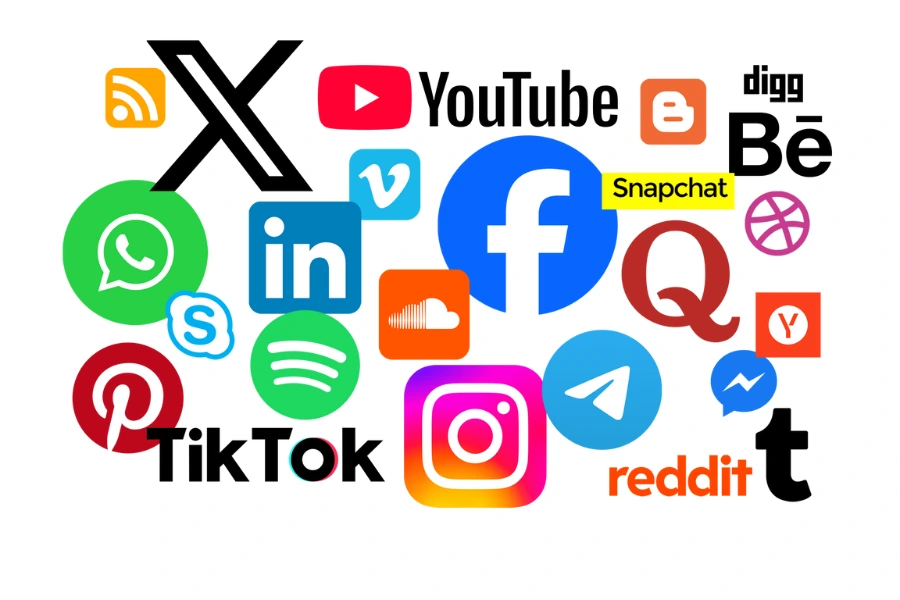Top Digital Marketing Tools That Can Transform Your Business

In today’s digital age, marketing your business online is no longer optional — it’s essential. Whether you run a small local shop or a growing startup, having the right tools can make your marketing smarter, faster, and far more effective. But with hundreds of options available, finding the ones that actually work can feel overwhelming.
This guide helps you discover the best digital marketing tools that save time, boost visibility, and help you grow — without confusing jargon or unnecessary complexity.
Why Digital Marketing Tools Matter
Think of these tools as your digital assistants. They don’t just make tasks easier — they help you make decisions based on data, manage multiple platforms from one place, and reach people more effectively.
Here’s what they do for you:
- Save time through automation.
- Track what’s working and what’s not.
- Improve your social media and website performance.
- Help you understand your audience better.
- Make your content more professional and consistent.
Now, let’s go category by category and explore which tools can help you best.
1. Analytics Tools — Know What’s Working
If you don’t measure your marketing, you can’t improve it. Analytics tools give you the insights needed to make smarter choices.
Google Analytics 4
Google Analytics is the most widely used tool for tracking your website’s performance. It tells you where your visitors come from, which pages they like, and what actions they take.
With Google Analytics 4 (GA4), you can also track events like sign-ups, downloads, and purchases. The best part — it’s free and integrates easily with Google Ads and Search Console.
Kissmetrics
If you want more detailed insights into customer behaviour and conversions, Kissmetrics helps you track every step of the buyer’s journey. It’s great for businesses that focus on improving sales funnels and customer retention.
Tip: Start with GA4 to understand your traffic, and move to advanced tools like Kissmetrics once your business starts scaling.
2. SEO Tools — Bring More Traffic to Your Website
Search Engine Optimisation (SEO) is the backbone of digital marketing. The right SEO tools help you understand what people are searching for and how to make your content rank higher.
SEMrush
This all-in-one SEO suite gives you keyword research, competitor analysis, backlink data, and content optimisation. It’s one of the best tools for digital marketers and content writers.
You can check which keywords bring the most traffic, find new ones to target, and even spy on your competitors’ marketing strategies.
Ubersuggest
If you’re just getting started, Ubersuggest by Neil Patel is an affordable and beginner-friendly tool. It gives keyword ideas, SEO difficulty scores, and content suggestions — perfect for bloggers and small businesses.
Tip: Use SEMrush for deep SEO analysis and Ubersuggest for quick keyword inspiration.
3. Social Media Management Tools — Stay Consistent Everywhere
Managing multiple social media accounts can be stressful. That’s where social scheduling and management tools come in.
Hootsuite
Hootsuite lets you schedule, post, and analyse your social media performance across Facebook, Instagram, LinkedIn, and more — all from one dashboard. It also helps you track mentions of your brand online.
Buffer
If you prefer something lighter, Buffer is simple, affordable, and easy to use. It’s ideal for freelancers and small teams who want to plan posts in advance and track engagement.
Tip: Use these tools to plan your posts weekly. Consistency matters more than frequency — showing up regularly builds trust.
4. Content Creation Tools — Make Everything Look Professional
Good visuals grab attention. You don’t need to be a designer to create beautiful content anymore.
Canva
Canva is a game-changer for anyone who creates graphics. It offers templates for everything — from Instagram posts and ads to presentations and infographics.
You can drag-and-drop images, use free icons, add animations, and create brand kits with your logo and colours.
Even if you’ve never designed anything before, Canva helps you create posts that look professional in minutes.
Grammarly
Every marketer writes — emails, blogs, or captions. Grammarly helps you polish your writing by checking grammar, tone, and readability. It ensures your message sounds clear and confident.
Tip: Use Canva for design and Grammarly for writing. Together, they make your content look and sound polished.
5. Email Marketing Tools — Stay in Touch with Your Audience
Email marketing is still one of the best ways to build long-term relationships with customers. It lets you communicate directly and personally.
Mailchimp
Mailchimp is a beginner-friendly tool for sending newsletters, automating campaigns, and managing subscribers. It offers pre-designed templates and analytics to see how your emails perform.
You can send welcome emails, promote offers, or share blog updates — all with just a few clicks.
HubSpot Marketing Hub
If you want something more powerful, HubSpot provides a full marketing automation system — including landing pages, forms, workflows, and CRM integration. It’s ideal if you manage multiple campaigns or a sales team.
Tip: If you’re starting small, Mailchimp is perfect. As your audience grows, switch to HubSpot for advanced automation.
6. Collaboration and Project Management Tools — Keep Your Team Aligned
Marketing requires coordination. Whether you’re working alone or with a team, having a system to track ideas, deadlines, and approvals makes life easier.
Trello
Trello uses a simple board system with cards and lists to manage tasks. You can plan content calendars, assign tasks, and see project progress visually. It’s perfect for managing your blog or social media schedule.
Notion
If you prefer an all-in-one workspace, Notion helps you take notes, store ideas, plan content, and collaborate with your team. You can even embed files, links, or databases inside a single document.
Tip: Use Trello for managing workflows and Notion for organising ideas and resources.
7. Advertising and Conversion Tools — Turn Visitors Into Customers
Once your website and social media attract traffic, you need tools that convert those visitors into paying customers.
Google Ads
Google Ads helps you reach people who are already searching for your products or services. With the right keywords and bidding strategy, you can attract highly targeted traffic that converts.
Facebook Ads Manager
For brand awareness or engagement, Facebook Ads Manager (which includes Instagram ads) lets you create and test ads easily. You can target people based on interests, age, location, and even behaviours.
Hotjar
Ever wondered how visitors interact with your site? Hotjar shows you heatmaps, clicks, and scrolling patterns. This helps you understand what users find engaging or confusing.
Tip: Combine analytics tools like GA4 with Hotjar’s visuals to improve your landing pages and ad performance.
8. Social Listening Tools — Understand Your Audience Better
It’s not enough to just post online — you need to listen too. Social listening tools help you monitor conversations about your brand or industry.
Keyhole
Keyhole tracks mentions, hashtags, and engagement across multiple social platforms. It’s great for understanding what topics your audience cares about and how your brand is performing online.
Brandwatch
This tool goes even deeper by analysing trends and audience sentiment. It’s used by larger brands to monitor their reputation and competitors in real time.
Tip: Even if you don’t invest in premium tools, manually checking mentions and comments regularly helps you stay connected with your audience.
9. Design and Video Tools — Stand Out Visually
In a world where video and visuals dominate, these tools help you create professional content easily.
CapCut
CapCut is a free, user-friendly video editor for short-form videos (like Instagram Reels or YouTube Shorts). You can add effects, captions, transitions, and music in minutes.
Adobe Express
If you want more control, Adobe Express offers templates, video editing, and graphic design features. It’s great for brands that want consistent and premium-looking visuals.
Tip: Video content performs better on almost every platform — aim to make short, useful, and authentic videos rather than perfect ones.
10. Marketing Automation Tools — Save Time and Scale Easily
When your marketing starts to grow, automation tools become essential. They save you from doing repetitive tasks and help you deliver a consistent experience.
Zapier
Zapier connects your favourite tools — like Mailchimp, Google Sheets, and Trello — so they can work together automatically. For example, every time someone fills out a form on your website, Zapier can automatically add them to your email list.
HubSpot (again)
Beyond emails, HubSpot automates lead nurturing, CRM tracking, and reporting — making it perfect for teams who want one dashboard for everything.
Tip: Start automating small tasks first, such as email follow-ups or form submissions. Once you get comfortable, scale up your automation gradually.
How to Choose the Right Digital Marketing Tools
With so many options, it’s easy to get lost. Here’s a quick checklist:
Identify your goals.
Do you want to increase website traffic, improve engagement, or generate leads?
Set a budget.
Many tools offer free versions or trials — test them before upgrading.
Choose simplicity over complexity.
The best tool is the one you’ll actually use regularly.
Integrate your tools.
Pick tools that connect well with each other — for example, GA4 with Google Ads, or Mailchimp with your website.
Keep learning.
Most platforms have free tutorials and communities that help you grow your skills.
A Sample Marketing Stack for You
If you’re starting out or managing a small business, here’s a simple but powerful combination to begin with:
| Category | Tool | Why It Works |
|---|---|---|
| Analytics | Google Analytics 4 | Free, detailed insights |
| SEO | Ubersuggest | Easy keyword research |
| Content | Canva + Grammarly | Great for posts and writing |
| Social Media | Buffer | Simple scheduling |
| Mailchimp | Easy automation | |
| Collaboration | Trello | Keeps tasks organised |
| Ads | Google Ads | Targeted traffic |
As you grow, you can upgrade to SEMrush, HubSpot, and Hotjar for deeper analytics and automation.
Final Thoughts
Digital marketing can feel complex at first — but the right tools make it manageable and even enjoyable. You don’t need to use everything at once. Start small, experiment, and add tools as your confidence grows.
Remember, tools only amplify your strategy. What matters most is how well you understand your audience, your message, and your goals.
So take it step by step, explore the options that fit your needs, and build a marketing system that works for you — smart, simple, and sustainable.
Calling all Marketers!
🔴 Are you tired of searching for the perfect job?
Whether you're into content writing, SEO, social media, graphic design, or video editing—full-time, freelance, remote, or onsite—we've got your back!
👉 We post over 30 job opportunities every single day. Yes, every day (all verified).
Join the most reliable and fastest-growing community out there! ❤️
And guess what? It’s FREE 🤑
✅ Join our WhatsApp Group (Click Here) and Telegram Channel (Click Here) today for instant updates.







